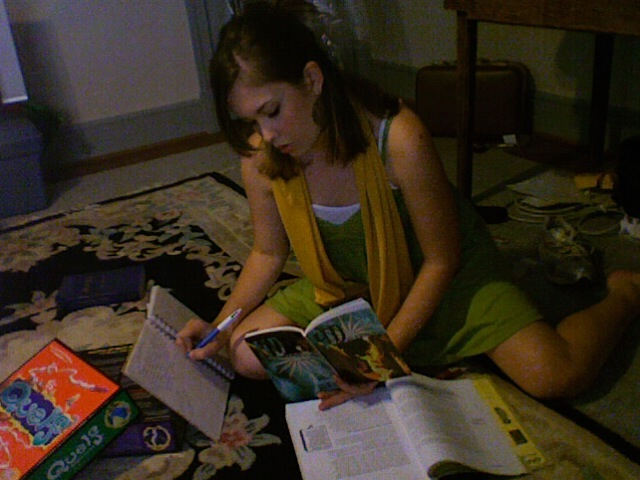Wed 5 May 2010
While I appreciated visiting Whitman’s home and grave, I have to admit that when I left the conference, I was pretty concerned that I hadn’t gotten as much out of it as I could have. In general, I felt closed off from the experience, like I just wasn’t in the moment but everyone else was. And I had been hoping that this conference would produce a sense of unity to counteract something that has troubled me about reading Whitman for a while– the fact that he is a groundbreaking democratic figure, but I hardly seem able to understand/explain him, certainly not before I witness someone else doing so. In other words, being in a group talking about Whitman doesn’t help me like I think it should. Maybe I just feel jealous because I’m not connecting to him as quickly as others and I feel excluded from this inclusive figure.
One of the most poignant moments in the conference for me was when we were touring the Whitman House. I, like most others, was walking slowly and quietly taking everything in. I was hoping to feel “something” walking where his bootsoles had, but I wasn’t getting anything. Again, I think I saw other people in awe and couldn’t help but be envious. Anyway, we progressed through the house, and the upstairs was smaller so only a few of us could be in certain areas at a time. I was still feeling this block between me and Whitman except–and this is going to sound strange–when I entered his bathroom. The bathroom, as some of you will recall, was teeny tiny and really couldn’t fit more than one or two people. So I walked in by myself, and once I crossed into that room, once everyone I was with had disappeared from my scope of vision, it was truly like I was in a new dimension. For a second or two, I got a little dizzy, I had tears in my eyes, and I really believed that he had been there. But after those couple seconds, as I exited the bathroom, my connection with him deflated, and I was back to trying to force an experience. Obviously there is only so much that can be accomplished when you’re thinking as hard as I was to feel something spiritual. But I am still unsettled because he’s a figure who, given his principles and purposes, should have a more natural significance for me than he does. He exudes democracy, and I almost feel intellectually/spiritually marginalized when I study him.
So now I have this tendency to see Whitman as sad and lonely instead of unifying. I’m probably making this too much a black-and-white issue; maybe I’m mourning that that he had things figured out over a century ago but not enough of the world/country does today, especially for how ubiquitous an icon he is. This is not an issue I’ve given up on, and I will continue to read him to see if I can settle into a more organic relationship with him and his ideas.
I write this post listening to this Fresh Air interview with Robert Hass on Whitman. Hass and Terry Gross discuss some of the points of democracy/spirituality/narcissism that we explored in class, and it is comforting, I think, to hear these issues played out in other conversations. For the most part, I think the interview is pretty good for people who don’t know Whitman to listen to. Additionally, there are some things I think every Whitmaniac will appreciate, but of course there are other things that don’t get the attention they should. A little over four minutes from the end, his grave gets kind of a negative shoutout which I think might spark interesting conversation from those of us who visited. Also, at the very end, there is an excerpt from Fred Hirsch’s album Leaves of Grass. I have not bothered to listen to the album in its entirety, so I don’t want to admonish the whole thing, but the small piece of Song of Myself previewed after the interview sounds pretty bizarre.
